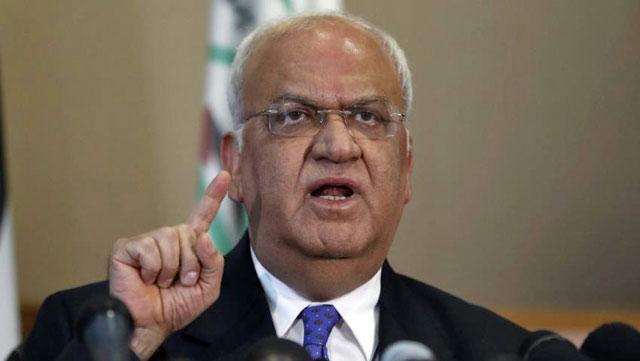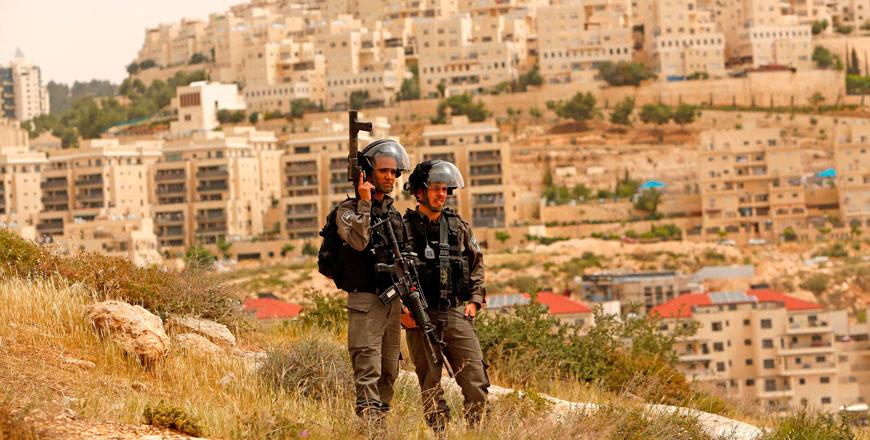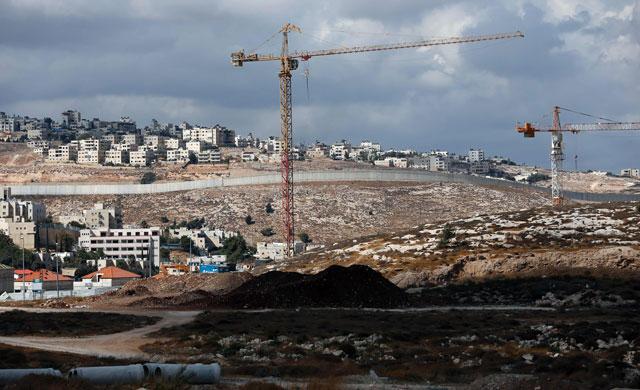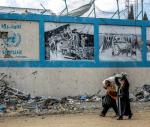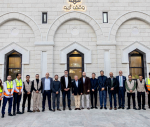You are here
Trump recognises Jerusalem as Israel's capital
By AFP - Dec 07,2017 - Last updated at Dec 07,2017
WASHINGTON — President Donald Trump recognised Occupied Jerusalem as Israel's capital Wednesday — a historic decision that overturns decades of US policy and risks triggering a fresh spasm of violence in the Middle East.
"Israel is a sovereign nation with the right like every other sovereign nation to determine its own capital", the US leader declared from the White House. "Acknowledging this as a fact is a necessary condition for achieving peace."
“It is time to officially recognise Jerusalem as the capital of Israel,” Trump said, urging calm and “the voices of tolerance to prevail over the purveyors of hate”.
The declaration — met by fierce regional condemnation — ends seven decades of deliberate diplomatic ambiguity about the final status of a holy city vociferously claimed by both Israelis and Palestinians.
Although welcomed by Israel’s Prime Minister Benjamin Netanyahu as a “courageous and just decision”, Trump’s move also left the already faltering peace process in deep doubt.
Mahmoud Abbas’ Palestine Liberation Organisation (PLO) said Trump has destroyed the two-state solution, warning the United States could no longer hope to be a peace broker, while Hamas — the Palestinian Islamist movement that runs the Gaza Strip — said Trump’s decision opens “the gates of hell on US interests in the region”.
Making the announcement, Trump also kicked off the process of moving the US embassy from Tel Aviv to Jerusalem.
That makes good on a campaign promise dear to evangelical Christian and right wing Jewish voters — as well as donors — in what he said marked the start of a “new approach” to solving the thorny Israeli-Palestinian conflict.
Trump’s predecessors — from Bill Clinton to George Bush — made similar campaign promises. But they quickly reneged upon taking office and assuming the burden of war and peace.
Having taken office with no foreign policy experience and denouncing experts, Trump was determined to show his arrival in Washington spells the end of business as usual.
“Many presidents have said they want to do something and they didn’t do it,” Trump said in the run-up to his historic address.
“Whether it’s courage or they changed their mind, I can’t tell you”, he said. “I think it’s long overdue.”
Days of rage
The announcement leaves many angry US allies and leaders across the Middle East trying to find a measured response and hoping that the tinderbox region is not destined for yet another round of bloodshed.
The leaders of Muslim nations deployed ever-harsher rhetoric to describe Trump’s decision, dashing any hope of a muted response that would help avoid clashes.
Turkey called the decision “irresponsible” and illegal.
In a frantic series of calls, the leaders of Saudi Arabia, Egypt, Jordan, the European Union, France, Germany and Turkey had warned Trump against the move.
Pope Francis joined a list of leaders warning of a historic misstep.
“I cannot silence my deep concern over the situation that has emerged in recent days,” the pontiff said Wednesday.
Moving the US embassy will probably take years to implement, but the repercussions of Trump’s decision preceded even his announcement.
Hundreds of Palestinians burned US and Israeli flags as well as pictures of Trump in the Gaza Strip, while relatively small clashes erupted near the flashpoint West Bank city of Hebron.
Palestinians called for three days of protests — or “days of rage” — starting Wednesday.
US government officials and their families were ordered to avoid Jerusalem’s Old City and the West Bank, though the situation remained largely calm up until Trump’s address.
Turkish President Recep Tayyip Erdogan called for a summit of the Organisation of Islamic Cooperation (OIC), the main pan-Islamic body, in Istanbul next week to display joint action over Jerusalem.
Jordan and the Palestinians also called for an emergency meeting of the Arab League.
Peace still possible,
US says
Most of the international community does not formally recognise Jerusalem as Israel’s capital, insisting the issue can only be resolved in negotiations — a point reiterated by UN Secretary-General Antonio Guterres in the wake of Trump’s decision.
Guterres implicitly criticised Trump, stressing his opposition to “any unilateral measures that would jeopardise the prospect of peace”.
But Trump insisted the move did not prejudge final talks, saying it simply reflected the reality that west Jerusalem is and will continue to be part of Israel under any settlement.
“This is nothing more or less than a recognition of reality. It is also the right thing to do,” Trump said.
“Peace is never beyond the grasp of those willing to reach it,” said the US leader, who declared that “this decision is not intended in any way to reflect a departure from our strong commitment to facilitate a lasting peace”.
“The United States would support a two-state solution if agreed to by both sides,” Trump said, as he announced that Vice President Mike Pence would travel to the region in the coming days.
Trump further stated that the United States was not taking a position on any “final status issues, including the specific boundaries of the Israeli sovereignty in Jerusalem, or the resolution of contested borders”.
“Those questions are up to the parties involved”.
Israel seized the largely Arab eastern sector of Jerusalem during the 1967 war and later annexed it, claiming both sides of the city as its capital.
The Palestinians want the eastern sector as the capital of their future state.
Trump was pushed to act on the embassy as a result of a 1995 law, which stated that the city “should be recognised as the capital of the state of Israel” and the US embassy be moved there.
A waiver has been invoked by successive US presidents, postponing the move on grounds of “national security” once every six months, meaning the law has never taken effect.
Several peace plans have unravelled in the past decades over the issue of how to divide sovereignty or oversee holy sites in Jerusalem.
Related Articles
RAMALLAH, Palestinian Territories — The Palestinian leadership on Saturday described Australia’s recognition of West Jerusalem as Israel’s c
WASHINGTON/OCCUPIED JERUSALEM — President Donald Trump will address around 800 US and Israeli dignitaries at the ceremonial opening of the A
RAMALLAH — Palestinian leaders Monday accused Donald Trump of abandoning any hope of a two-state solution after the Republican candidate sai


